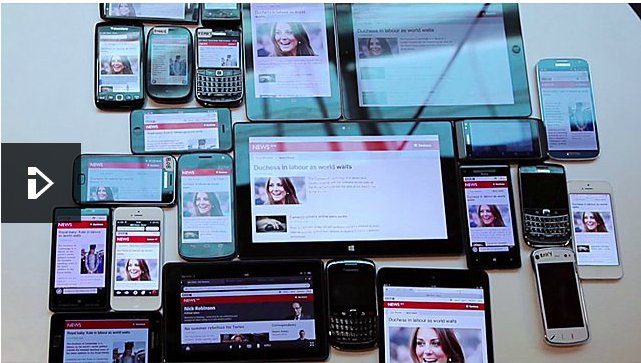The BBC news website is a very popular information source regulalrly achieving top ranking in the UK and abroad. To maintain this appeal, the BBC has recognised that they need to cater for different devices. They have made their news site responsive so it adapts to different devices and created specific apps that people can download for their Android and Apple products. Although a market leader, the BBC is simply responding to the habits of their users where, for example, in July 2013, mobile web traffic exceeded desktop for the first time – BBC News reaches new mobile traffic milestones.
While the expense of creating a specific app might not be justifiable for most SME’s, ensuring a website can be viewed and used on different devices should be a priority of every business, large or small, and needn’t entail major investment other than the initial redesign. Once this is done, the content is the same for all devices, only the images, screen width and buttons / links changing so they are usable and display quickly. For example a button for a desktop or laptop needs to be made larger for a smartphone or tablet so users can press them more easily using a smaller screen. Also when images are uploaded, smaller versions are automatically created so they display when a mobile is being used so users don’t rack up excessive data charges or wait too long for a download. A proper responsive web design and content management system will do all of this automatically and these days all our new web designs are responsive.
There is an interesting web article (for internal consumption, but unrestricted) where the BBC web describe how they went about converting their news site to a responsive web design: Responsive Web Design at BBC News






